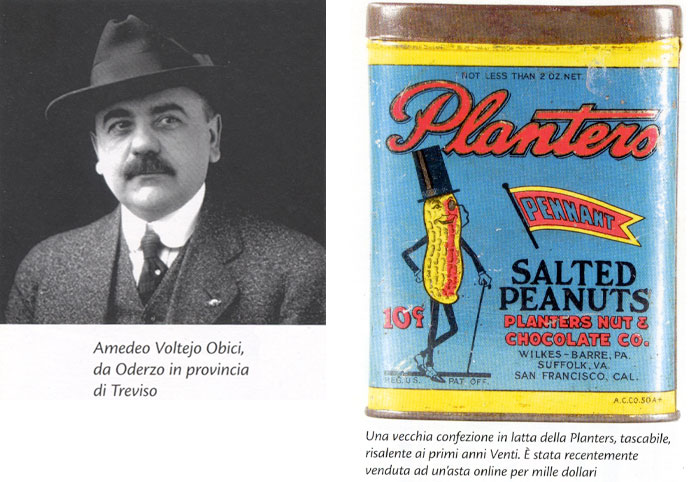Last October, Abigail Napp, an editor at La Cucina Italiana, a national cooking magazine available in Eataly stores in the U.S., asked me to write a “food piece” for Italian Heritage Month. I tried to go beyond the usual simple fare by adding an ingredient specific to the Italic Institute of America’s own cookbook: Italian American history. Here is what I wrote:
In a country like America, which reveres the entrepreneurial spirit, it’s fascinating that three of the most iconic foodstuff-related businesses in our nation’s history were founded by Italians: Planter’s Peanuts (Amedeo Obici in 1906), Tropicana Orange Juice (Anthony Rossi in 1947) and Chun King Chinese Food (Jeno Paolucci in 1947), who added a bit of “Italian spice” to the food).

Many Italian women were also entrepreneurs. Frozen pizzas are common in today’s grocery stores, but it was Celeste Lizio, a pizza-maker from Chicago, who pioneered the concept in the early 1960s. Working with the Quaker Oats Company, her “Mamma Celeste” pizzas became a household name.
The concept of submarine sandwiches was taken from neighborhood Italian delis and made mainstream by Fred DeLuca, who created the Subway chain stores in 1968. McDonald’s became even more popular as a fast-food empire with its iconic Big Mac hamburger, created in 1968 by one of its franchisees, Jim Delligatti. As for desserts, Italo Marcioni added a new way of enjoying ice cream by inventing the ice cream cone in 1904.
Regarding Italian restaurants, none is more famous than the Musso and Frank Grill in Los Angeles, the eponymous Hollywood eatery established in 1927 by John Mosso and Frank Carissimi. And on the East Coast, there is Sardi’s, established by Vincent Sardi Sr. in the same year, with its famous cartoons of celebrities on the wall [and now considered the birthplace of the “Tony Awards.”] How ironic that the Hollywood film industry, which has been fed by these two restaurants for nearly 100 years, shows zero gratitude by still caricaturing Italians in the movies!
After eating all of these foods, one can always work off the extra pounds at a local health club. And who created the concept of modern fitness? It was Charles Atlas, the “skinny boy on the beach” who transformed himself into a popular American icon of strength. He was born Angelo Siciliano.
And it was a contemporary of Atlas’s, Vic Tanny (born Iannidinardo), who pioneered the concept of modern health clubs, encouraging annual memberships and promoting them to everyone, not just hard-core bodybuilders.
Finally, one has to note the August 27th, 2020 passing of Anthony Martignetti who, as a young boy in 1969, was seen running through the streets of Boston’s North End after hearing his mother cry out for him through a window: “Anth-o-nee!!” Martignetti, a native of that famous Italian neighborhood, was chosen by advertisers to star in a TV commercial promoting Prince Spaghetti. Some say that famous ad finally transformed Italian food from being “foreign” to “American.”
Let’s lift a glass of Italian wine to salute all of the food facts above!
Cin cin! – BDC

Recent Comments